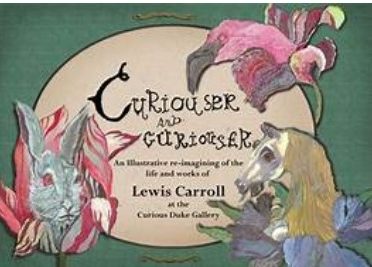I have written a lot about the things I have learned working with clients over many years. Then there have been colleagues – supervisors, teachers and mentors.
This page sets out to say something to colleagues: to therapists who see clients.
I am going to mention just one quality YOU and I need to be good practitioners. There are many others, of course, but let’s start with just one.
It is a quality needed by both practitioners and clients to ensure that safe experiments do not simply become tasks.
It is ……………………….. CURIOSITY
You may not have been trained in how to generate it, but its there …………. somewhere. Some have it, others don’t.
ALL can search for it and then PLAY with it. Anyone who saw the Dalai Lama and Desmond Tutu in conversation on Joy will have noticed how that can work!
One obstacle to curiosity is giving ourselves over to schools and ‘founders’ of schools who tell us all we need to know. Although I understand the necessity of training, I’d encourage some scepticism about learning. My own ex-students might endorse this or, indeed, stay sceptical!
What professional small, safe experiments might be done to side-step the tendency to go along with training in order to make it all fit together?
See this page for further discussion.
Good therapy is built on the shoulders of giants and rarely nipped out of thin air one afternoon walking the road to Damascus.
Be wary of training offering something new or comprehensive. It’s only your client, with you, who will need to be ‘comprehensive’ in applying safe experiments to their lives.
Heidi Levitt, PhD is a US Professor of Psychology and I find her contribution to our world of therapy refreshing. I have discussed her work elsewhere and I’d like to include a summary of some of her work on ‘clinical wisdom’ here:
Wisdom is beyond rational intelligence. Intelligence is necessary, but not sufficient: wise therapists have emotional intelligence to better understand how to work through painful and powerful emotions.
Wisdom can come via introspection and our lived experience, particularly through personal struggle. Wise practitioners strive to know themselves, before they get to know their clients. Staying with our own vulnerable and authenticity allows the practitioner to appreciate the human experience. This helps the practitioner to relate to clients – as equals – struggling through the same journey of being human.
The wise practitioner does not need to be intelligent. Intelligent people are not always wise. They can be too busy trying to be smart and remain oblivious to understanding human beings. Intelligence alone can block wisdom because it resists ambiguity and unpredictability.
A wise therapist can attend to their own emotions in order to empathically guide clients into understanding and utilizing their emotions.
Wise practitioners need to have experienced intimate relationships to be able to understand the needs, feelings, and dynamics of a relationship with clients.
Wise therapists value client authority to foster client empowerment. This promotes advocating with – not for – clients, and engaging with their own values and preferences. This attitude helps the therapist to remain collaborative and in partnership with their clients.
A wise therapist explores threat and uncertainty and remains open to shifting their own perspective. In effect, the wise therapist is willing to be ignorant about their client as a way to remain curious without imposing their own categories. The premise is that we never know who is sitting in front of us.
Oh, by the way, and this is a private observation: the wise practitioner does not seek to be all these things, all of the time! My relationship with the processes of acceptance or change can impede me at any time.
P.S If any visiting readers of this page are not therapists, then I like your approach to doing experiments. Doing what you want, and taking the consequences of so doing!
Further leads you can follow
How to design a safe experiment
Watching your progress on the scenic route
